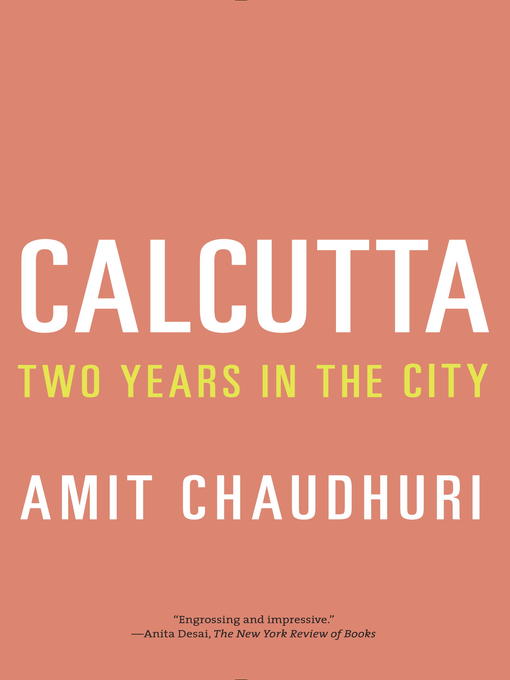
Calcutta
Two Years in the City
کتاب های مرتبط
- اطلاعات
- نقد و بررسی
- دیدگاه کاربران
نقد و بررسی

May 27, 2013
The “two years” in the title of this eloquent work of noblesse oblige is misleading, since the Indian-English author, musician, and professor of literature (The Immortals) was born in Calcutta in the early 1960s and spent much time there in the decades since. Chaudhuri draws on mostly tender, impressionistic memories of his hometown—descriptions familiar to readers of his fiction trilogy Freedom Song (collected in one volume). He felt compelled to write about Calcutta because of the city’s down-on-its-heels modernity, edgy diversity, and Marxist politics; he was taken by Calcutta’s crumbling colonial glory and architecture, its Bengali bourgeois class that aped the English ways, its literary and artistic inheritance (Tagore, Shankar), and its enormous number of destitute immigrant workers. The twice-partitioned Bengali capital became a kind of exotic mistress that the author, educated at Oxford and Cambridge, could not quit, and while his impressions are astute, his considerations of the lower classes, including the servants in his house, can seem patronizing. Agent: Peter Straus, RCW Literary.

June 15, 2013
Anglo-Indian novelist and musician Chaudhuri (Contemporary Literature/Univ. of East Anglia; The Immortals, 2009, etc.) navigates the complicated business of Calcutta's richly diverse Bengali-English makeup. Nostalgic and probing, the author's account of his native Bengali city that was never really his own encapsulates countless humming, modern Indian stories. Once the British Empire's colonial capital, an elegant Victorian, culturally diverse merchant town, Calcutta fell on bad economic times and into Marxist political turbulence from the 1970s onward, provoking the migration of the middle class and creating an enormous discrepancy of wealth. Chaudhuri, though born in Calcutta in 1962, grew up mostly in Bombay, though the author returned to Calcutta intermittently, spending holidays at his uncle's house (which inspired much of his fiction, he writes), before his parents moved back to Calcutta in 1989. Eventually, Chaudhuri found his voice as an author in a kind of "renaissance" that the city also experienced at about the same time. He continually attempts to find within the Calcutta makeup "concordances" with other places that he has found transformative and life-affirming--e.g., the movement from "urban dereliction into something compelling." Educated in England, well-spoken and a member of the privileged bhadralok (genteel Bengali bourgeois) class, the author can move among castes for keen observations, from befriending the ubiquitous squalid street entrepreneurs on Free School Street to taking high tea with the Ingabanga Mukherjee couple on Lower Circular Road. Names fascinate the author, as they indicate the demise of the Bengali language, and he devotes an entire chapter to the recent mystifying elections. Ever a journalist, novelist and literary critic, he is transported by others' stories and relays in his prose a vivid sense of time and place. Another illuminating facet to the endlessly compelling story of modern India.
COPYRIGHT(2013) Kirkus Reviews, ALL RIGHTS RESERVED.

September 1, 2013
While his portrait of Calcutta reads like the work of an erudite traveler, Chaudhuri (The Immortals, 2009) is a resident, and to him, Calcutta is one of the great cities of modernity. A renowned novelist and essayist as well as a musician, he is also a professor of contemporary literature at the University of East Anglia, where W. G. Sebald also taught. Though Calcutta is nuanced, atmospheric, and deeply preoccupied with the past, it is not Sebaldian; Chaudhuri is lively, not melancholy. Amid anecdotes and information, he interviews natives and immigrants from every sector of society, including Indians returning from the West who find that they are not necessarily at home because they have changed, as has Calcuttairrevocably. Who knew that Calcutta/Kolkata, the major city in the province of Bengal, had a democratically elected Communist government for decades? The Communists were responsible for making Calcutta India's most tolerant, multicultural, multireligious metropolis. There are many reasons to read Calcutta. Perhaps the best is to see a global citizen's view of the effects of globalization on a complicated, well-loved city.(Reprinted with permission of Booklist, copyright 2013, American Library Association.)

March 15, 2013
What to read after you have finished reading Katherine Boo's Behind the Beautiful Forevers: Chaudhuri's blend of memoir and history as he profiles magnificent, wayward Calcutta, where he lived for two years. The author of not just nonfiction but admirable fiction (Freedom Song: Three Novels won the Los Angeles Times Book Prize), Chaudhuri should deliver lovely reading, and India is hot in so many ways.
Copyright 2013 Library Journal, LLC Used with permission.

























دیدگاه کاربران